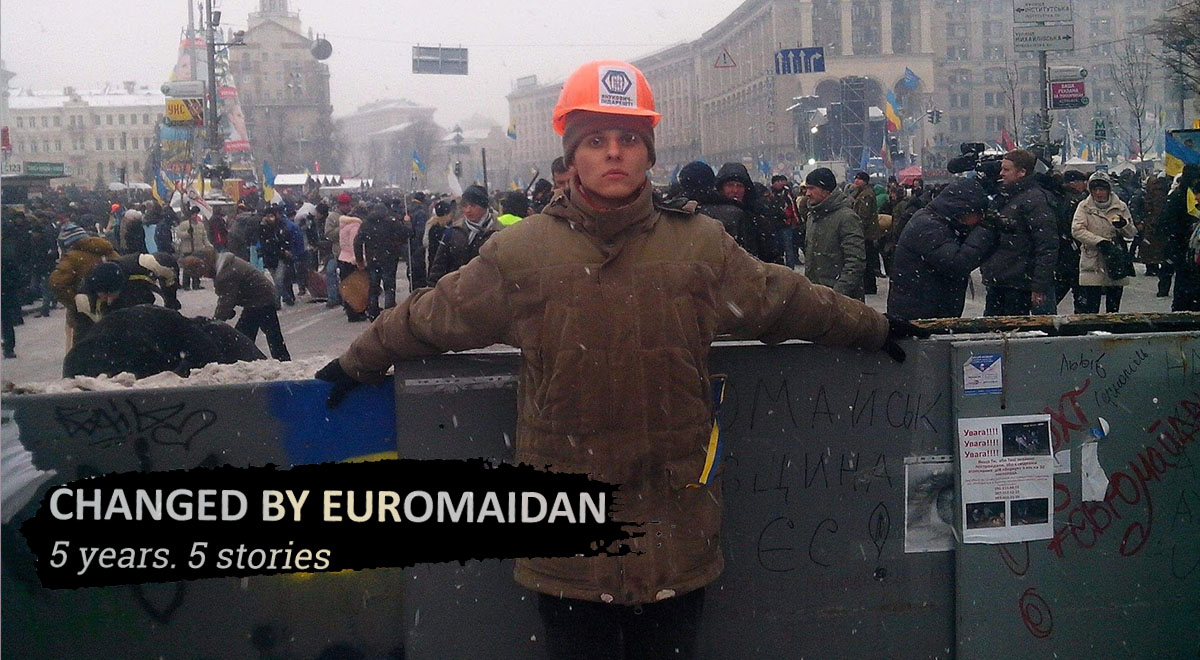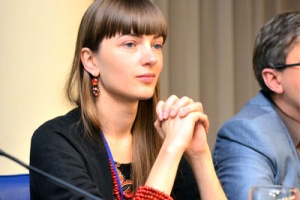Ukraine is still untangling the concoction of forces cracking down on its most consequential public uprising, and the recent sentencing of a chief titushka coordinator sheds new light on the state-condoned political violence of the winter of 2013-2014.
Often, words from foreign languages enter English. Such as the German "wanderlust," or French "entrepreneur." One of the Ukrainian words that went global is "titushka."
Hailing from the name of a real person, Vadym Titushka, who beat up two Ukrainian journalists covering an opposition rally in 2013, this term came to represent lumpenized sporty young men, often with a criminal background, who would be hired by pro-government forces to attack peaceful protests.
Titushkas came to the limelight during Ukraine's Euromaidan revolution of 2013-2014, when organized squads of such men would do the work that the police did not want to be seen doing: singling out protesters, beating them up, and torturing them, sometimes to death.
But afterward, the epidemic of titushkas spread to other post-Soviet republics with a need for political violence. Titushkas are key to crushing the protest activity of Putin's Russia and Lukashenka's Belarus.
Yuriy Krysin, one coordinator of titushka squads operating during Euromaidan, was sentenced to eight years behind bars by a Kyiv court on 23 September 2021. His case sheds light on plans of the Ukrainian state authorities to employ non-state actors to squash the anti-government protests in central Kyiv that ended in mass shootings of peaceful protesters in February 2014.
Yuriy Krysin was already serving a five-year sentence for his role in the murder of Vesti journalist Vyacheslav Veremiy, who was killed on 19 February 2014 in central Kyiv. Camouflaged unknowns with baseball bats and weapons attacked the taxi on which Veremiy was returning home. He died from a gunshot wound in the hospital.
Now he was found guilty of coordinating the kidnapping and torture of Euromaidan activists, as a result of which his summary term was increased to eight years.
The Ukrainian media Babel summarized what we learned of Ukraine's titushka adventures that winter from this trial. It emerged that businessman Oleksiy Chebotariov, who was close to then-Minister of Interior Vitaliy Zakharchenko (now under Ukrainian and EU sanctions and presumably hiding in Russia), found Krysin and made him a "job offer" -- pestering Euromaidan activists. The same job offer was given to Yevhen Zhylin, the head of the Kharkiv-based pro-Russian martial arts club "Oplot." Both agreed, but Krysin was heading to the Maldives for a vacation, so would coordinate the activities remotely with the help of his deputies, Serhiy Chemes and Pavlo Bialai.
The two deputies found 20-30 "volunteers" who would be paid UAH 400 ($45) to patrol protesting central Kyiv, catch Euromaidan activists and bring them to Chebotariov's office. The next episodes of titushka operations included putting out 400 titushkas to the outskirts of Kyiv to block highways by which Euromaidan activists from the regions were arriving.
Zhylin developed a plan to kidnap Euromaidan activists. The attacks should be carried out far from the city center, the idea being that the Euromaidaners would call in reinforcements, and there would be more activists to detain. The police were to help titushkas "detain" the Euromaidan activists.
On 21 January 2014, the hired thugs were given baseball bats and pepper spray, and a tent camp that the kidnapped Euromaidan activists were to be brought to was set up near the Boryspilska metro station. It was then when they kidnapped a totally random person -- Vladyslav Ivanenko, a man who did not participate in the Euromaidan protests and was not interested in politics. Nevertheless, the titushkas beat him up, demanding "confessions" and threatening to kill him.
Ivanenko was brought to the camp, where he was stripped naked and placed on a split. Zhylin twisted and trampled his genitals on camera while commenting "Pay attention. This will happen to everyone who goes to Euromaidan protests."
After arriving from the Maldives, Krysin received $200,000 from Chebotariov. Chemes received $15,000, and ordinary titushkas who guarded the camp were paid only UAH 800 ($90).
Krysin did not plead guilty and plans to appeal the sentence. He explains the dozens of phone calls he made from the Maldives by claiming these were discussions of plans to build a church.
Read also:
- ECtHR rules Yanukovych government responsible for crimes against Euromaidan, death of one protester
- What we know about the bloodiest days of Euromaidan
- Ukraine’s public prosecution reform leaves Maidan massacre probe in limbo
- Police chief accused of mandating Euromaidan crackdown appointed to key post in Zelenskyy’s Office
- What did Ukraine’s Euromaidan revolution really achieve?





